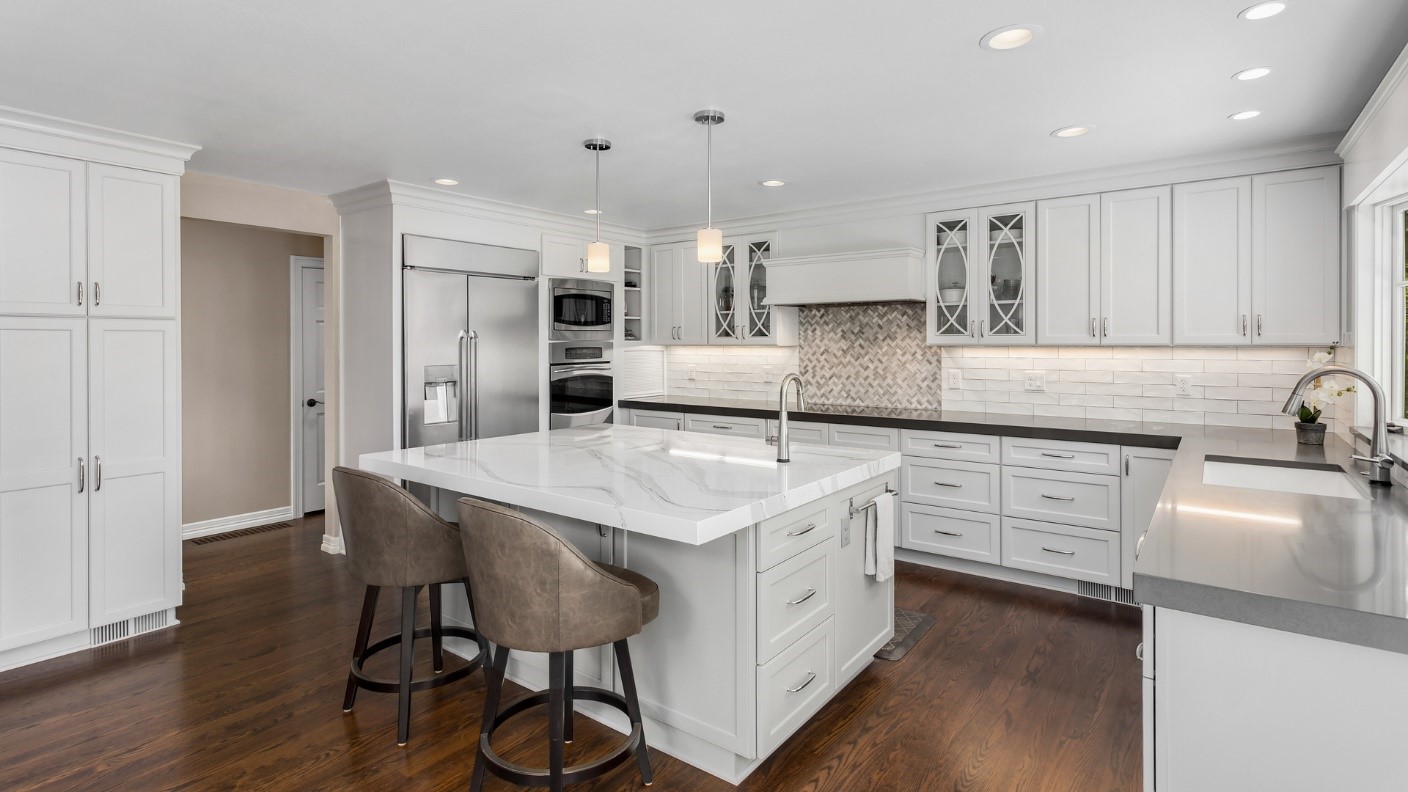The pros and cons of a marble kitchen countertop
The pros and cons of a marble kitchen countertop
The pros and cons of a marble kitchen countertop
The clean, bright look of marble, as well as its inherent timeless elegance, has been known specifically to enchant homeowners. Marble’s natural colour and variability adds an element of dressiness to the kitchen. Marble countertops increase your home’s resale value and it also brings a lot of satisfaction when preparing foods as well as when spending time in the kitchen space.
Marble is one of the less expensive choices to install compared to any other type of natural stone especially when it comes to hard-wearing countertop materials. Therefore, depending on the type of marble, it can be more affordable and easy to install than granite, and certainly more so than stainless steel and quartz. Marble kitchen countertops look great and can bring a sense of luxury, gracefulness, and satisfaction to your kitchen space. You will find out some of the major pros and cons of making use of this dazzlingly beautiful natural stone in your kitchen space below.
The pros of a marble kitchen countertop include:
BEAUTY: The classic, timeless beauty and the white brightness of marble is rare and this is not readily found in granite or quartz. There is a wide selection of a variety of marble kitchen countertops, alongside its different finishes which can be made to blend with almost any kind of room design. Marble’s multi-faceted ability to work with so many different design styles makes every homeowner drawn to its use. The gleaming surface of marble gives the kitchen countertop a polished, feminine (alongside gold or brass accenting) and modern outlook.0
UNIQUENESS: Marble is a metamorphic rock that is formed when limestone or dolomite rock is subjected to extreme temperature and pressure. This is also the process whereby the veins in marble are formed. The distinctive veining of marble gives each of the slabs a unique and different look. Therefore, the uniqueness of your kitchen countertop is guaranteed because no two slabs of marble can be the same. The selections can be made from a great range of natural colours because marble comes in varying hues of white, black, grey, yellow, green and pink.
EASY CLEANABILITY: Another advantage that comes with using a marble kitchen countertop is that it is easy to clean. Spills are easily wiped up with cleaning material. For daily cleaning, all you need to do is to take a mild soap, a sponge or a non-abrasive towel, and a warm water mixture—and just sweep over the countertop.
HEAT RESISTANCE: The marble stone is heat-resistant; hence, it is a good option if your kitchen sees a lot of bake-offs. However, its ability to withstand high temperature does not justify that you should place a piping hot pot/pan that has just been removed directly from the cooker on the marble. This is to prevent the risk of discolouring or burning the surface of the marble kitchen countertop.
COOL TEMPERATURE: Marble is naturally cool because it does not conduct heat very well. The reason why marble feels cold is as a result of the fact that it conducts heat differently than other surfaces. Marble is a very dense and hard stone; hence, this makes it easier for heat to transfer from a warmer object. The heat moves away from the marble quickly, giving it a cool touch. As a result of this, marble kitchen countertops stay cool naturally and this quality makes the marble kitchen countertop a good choice for working with pastries.
The cons of a marble kitchen countertop include:
COST: The price of marble, according to the interview conducted by the Marble cleaners, falls between the range of $50 – $250 per square foot. The thickness, quality, and color of marble involved in designing the marble kitchen countertop is responsible for the variability in the price. For example, a polished marble will be more expensive than a honed marble. Thus, the total cost for a countertop can work out to be $3500 – $4000. Marble is relatively comparable in price to granite which is usually sold at retail outlets in the range of $50 – $225 per square foot. The installation and labour cost per square foot that will be incurred during the process of creating the marble kitchen countertop, depending on the design’s complexity, falls within the range of $40 – $60. In addition, the different styles of honing that will be done, edging of counters, designing, sealing the surface as well as the number of cut-outs required for your specific application will definitely cost an extra price range of $30 – $50. The Carrara marble, a greyer version with softer veins from Italy, is one of the least expensive natural countertop materials on the market.
SCRATCH-SENSITIVE: Marble is composed of Calcium Carbonate (CaCO3) which is sensitive to acidic solutions such as wine, lemon, vinegar and other citrus juices. Marble is a soft stone and as such, it can scratch easily, especially when it is touched for a long period of time by something acidic. A sliced piece of lemon that was laid down on a polished countertop overnight can leave a mark in the shape of the lemon slice, duller than the surface around it. The use of marble in your kitchen calls for caution because you wouldn’t want to be having horrible scratches on your beautiful marble kitchen countertops.
STAIN-SENSITIVE: Marble is prone to staining because it has a naturally porous surface, which is responsible for its high liquid absorbability. The honing of the marble during the process of installation also makes it more porous. Red wine and some fruits are infamous for leaving indelible stains on a kitchen countertop made of marble. If by chance, oil, wine or any liquid makeup is spilled on a marble countertop and is not wiped off promptly, it can penetrate into the marble’s surface. As soon as it penetrates into the marble’s surface, it becomes difficult to remove. A preventive measure to this problem is to treat the marble by either sealing or applying a protective topcoat.







